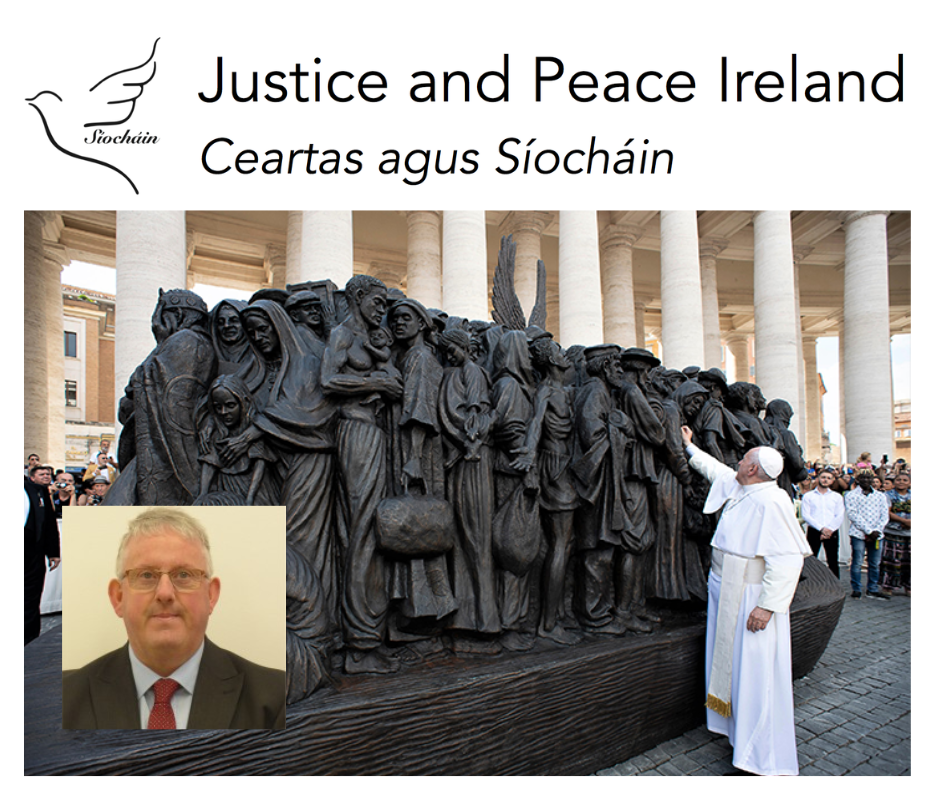For the month of June, Pope Francis asks us to pray that migrants fleeing from war or hunger and forced to undertake journeys full of danger and violence, that they may find welcome and new opportunities in the countries that receive them.
In the context of this theme to pray for migrants, Dr Gary Carville, Executive Secretary for Social Issues & International Affairs for the Irish Catholic Bishops’ Conference, said, “Among the most moving experiences I have had was while looking at the Angels Unawares sculpture (pictured) in Saint Peter’s Square in Rome. Standing in front of it and then walking around it, I was drawn to the eyes of the figures – the desolation, the fear, the desperation for welcome and care. The look of despondency in the eyes of the children is particularly chilling. It is all too easy to look away, to see it all as someone else’s problem or even, as we see all too often, to scapegoat these people with the ills of society.
“An ancient Rabbinic text, called the Devarim Rabbah, declares that every person is accompanied at all times by a procession of angels crying out for us to ‘Make way, for an image of the Holy One is approaching’. Yes, every person is royalty. However, all too often the person containing the image of God is humiliated, degraded, incapacitated and even killed before our very eyes. How do we react when we see people seeking shelter and help? Do we welcome them? Do we encourage and support efforts to give them opportunities for encounter in a safe environment so that they may contribute to a greater flourishing of our community? Or do we run away?
“For us in Ireland, immigration on the levels we are experiencing today is something new. It challenges us to see the potential in everyone, to see in the person seeking welcome and refuge the possibilities that are on offer. Let us not allow terminology, be it legal, cultural, political or social, to obscure the real and heartfelt cry for help and hospitality which the newcomer seeks, along with the gifts that can be brought to us through their divine giftedness. Let us see, judge and act as if we could hear and see the angels in our midst.”
“To see the image of God, the Imago Dei, in every human person lies at the heart of our faith (Genesis 1:27). In fact, ‘every authentic religious experience, in all cultural traditions, leads to an intuition of the Mystery that, not infrequently, is able to recognise some aspect of God’s face’ (Compendium of the Social Doctrine of the Church, 20). Being in the image of God places the human creature at the centre of life. In the words of Saint Paul VI, ‘our task is to know man, so that God may be known’. Speaking at the last General Session of the Second Vatican Council in 1965, he declared: ‘Would it not be, in short, a simple, new and solemn teaching to love man in order to love God? To love God…not as a means but as the first step towards the final and transcendent goal which is the basis and cause of every love,’” (Office of Readings, 29 May 2024) Dr Carville said.
ENDS


